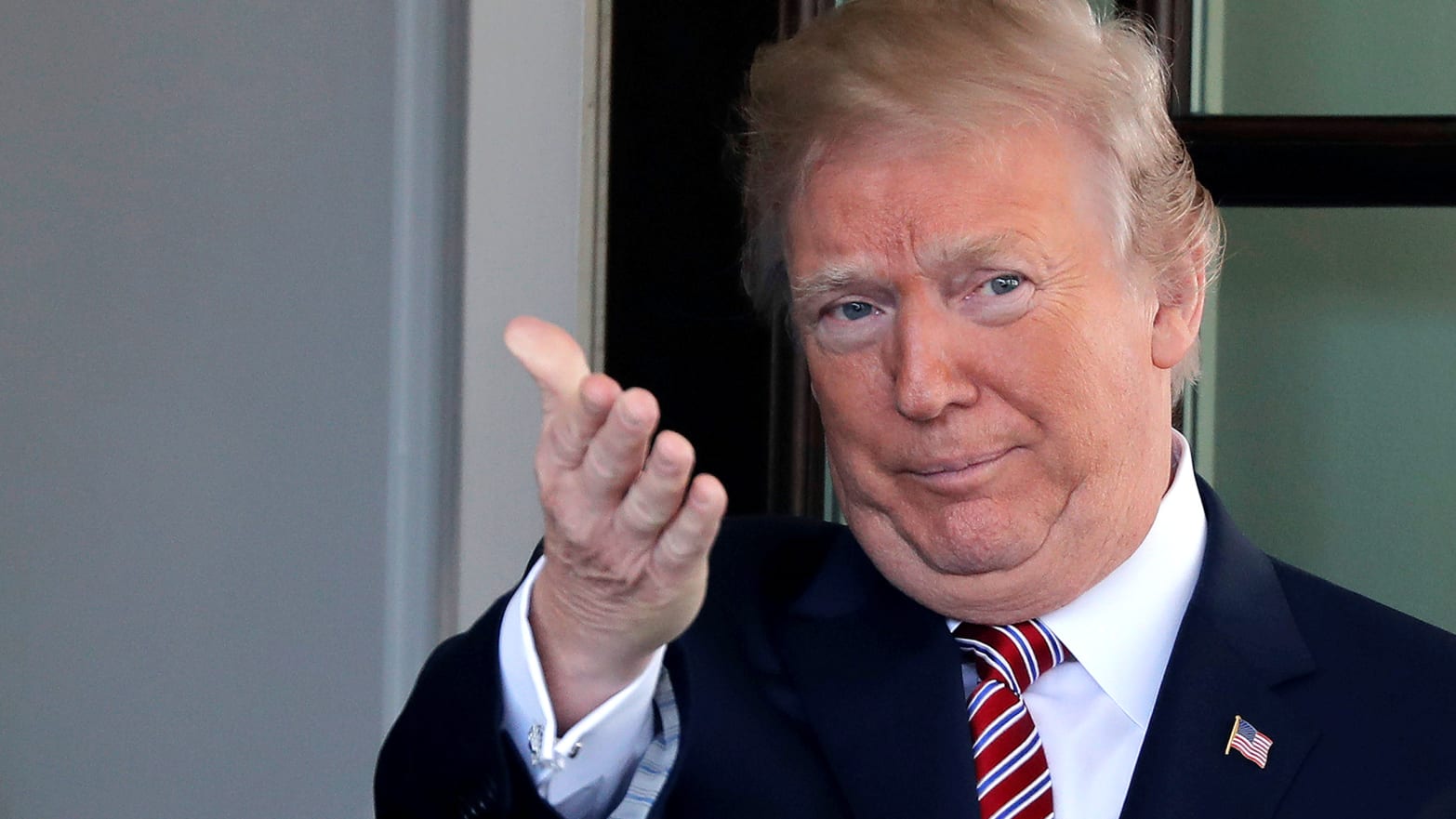Republicans searching for an antidote to the Trump toxin have glommed onto impeachment, framing it as a Democratic deep state coup to unseat a conservative president.
With the FBI raiding the home and office and hotel room of President Trump’s personal lawyer, Michael Cohen, impeachment is in the air, some Democrats looking ahead to the midterms are eager to wave the bloody shirt as a way to pull the Resistance across the finish line.
The ploy, though, is prompting some name-brand Democrats to come down on the other side and oppose impeachment as premature unless of course President Trump fires special counsel Robert Mueller, in which case all bets are off.
Pushing impeachment would be a mistake, says David Wasserman, who tracks House races for the non-partisan Cook Political Report.
“It’s a political loser for Democrats at the moment,” he told The Daily Beast. “If midterms are a referendum on Trump, Democrats win that referendum. If it’s a referendum on impeachment, it’s a much closer question.”
There are Trump voters out there who Democrats must win over to gain the majority in the House and possibly the Senate. Trump’s approval rating among Republicans and Independents who lean Republican was 84 percent in the most recent NBC News/Wall Street Journal poll, with just 15 percent disapproving.
Unless it is clear that a super majority of 67 will convict in the Senate, running on impeachment in the midterms may get the Democratic base excited, but it won’t win over Republican-held districts needed to regain power in the House.
“This is a case of Democrats becoming their own worst enemy,” says Wasserman, who sees the same looming disconnect with the voters in 2018 that played out in 2016 when the Clinton campaign talked about Trump while Trump talked about jobs and the economy.
Too many Democrats are fixated on Stormy Daniels and the latest developments in the Mueller probe while most swing voters in key districts care about the latest Congressional Budget Office score showing the GOP budget blows a huge hole in the deficit, with foreboding implications for social security and Medicare. “Those are the areas where Republicans are really struggling in these swing districts,” says Wasserman.
Trump has gone up about 3 points in the polls since the beginning of the year as Democrats instead talk about sex scandals, tariffs and the Mueller investigation—“all marginally better things for Republicans to be talking about than the tax cut bill which is wildly unpopular, and the health care bill, which is also wildly unpopular,” he says.
Most Democratic leaders are not talking about impeachment, but they don’t throw cold water on it either, knowing how strongly the Democratic base feels. The fragile truce in the party broke out in the open last week when Obama strategist David Axelrod tweeted: “Dems should NOT commit to impeachment unless & until there’s a demonstrable case for one.
It is not just a matter of politics. It’s a matter of principle.
If we ‘normaiize’ impeachment as a political tool, it will be another hammer blow to our democracy.”
Wealthy hedge fund investor and philanthropist, Tom Steyer, responded with a tweet saying Trump has already committed 8 impeachable offenses, asking: “What are we waiting for?”
Other than former attorney general Eric Holder, who tweeted, “Ax is exactly right,” there hasn’t been a public stampede among Democrats to shut down talk of impeachment, and with good reason, no one wants to run into a buzz saw from the pro-impeachment left.
“I’m not opposed to impeachment,” Axelrod said in an email.
I am opposed to asking Democrats or anyone to commit to impeachment before Mueller finishes his work.
“Barring an intervening event, such as the firing of Mueller, I think they should wait and evaluate his findings and act on the basis of facts and not passions.
“If candidates are forced to commit in advance to impeachment as a term of their election, and the Ds take it up as their first order of business, it will be seen as a very partisan exercise. It’s bad for Democrats and, most important, bad for the country.
John Lawrence was Nancy Pelosi’s chief of staff when she faced pressure in the lead up to the 2006 midterms to run on impeachment after Bush was accused of falsifying intelligence to take the country to war with Iraq. Pelosi instead ran on opposition to the Iraq War and protecting Social Security from Bush’s privatization effort.
“I remember people pressing her to launch impeachment,” says Lawrence. “She held off.”
After Democrats won the majority in 2006, many expected her to turn to impeachment. Omstead. she found areas of agreement with Bush. “She resisted (impeachment) and then 2008 happened, and Democrats won the House and Senate,” says Lawrence.
Pelosi has not embraced impeachment this time around either, and if Democrats take back the House, Lawrence expects her to focus on getting bills to the floor on immigration, gun safety and health care, what Lawrence calls “the unmet agenda” that voters want addressed.
“That’s where most serious leaders are. We’ve won all the liberal districts. How do we persuade the swing voters? They want a fair tax system, an immigration system that works, jobs and infrastructure, and health care fixed. That’s what they want government to do. They’re not as interested in tit for tat —and they understand if you don’t have 67 votes in the Senate, it’s (impeachment) a wasted effort.”

